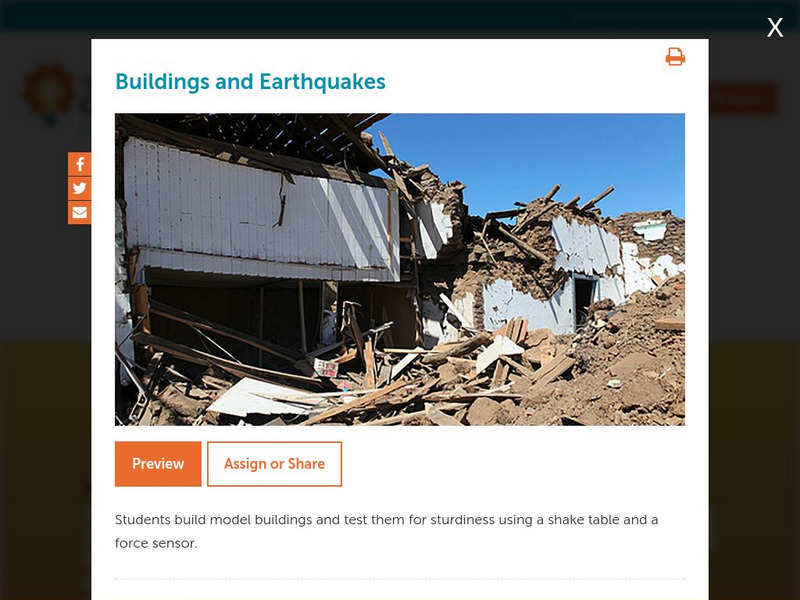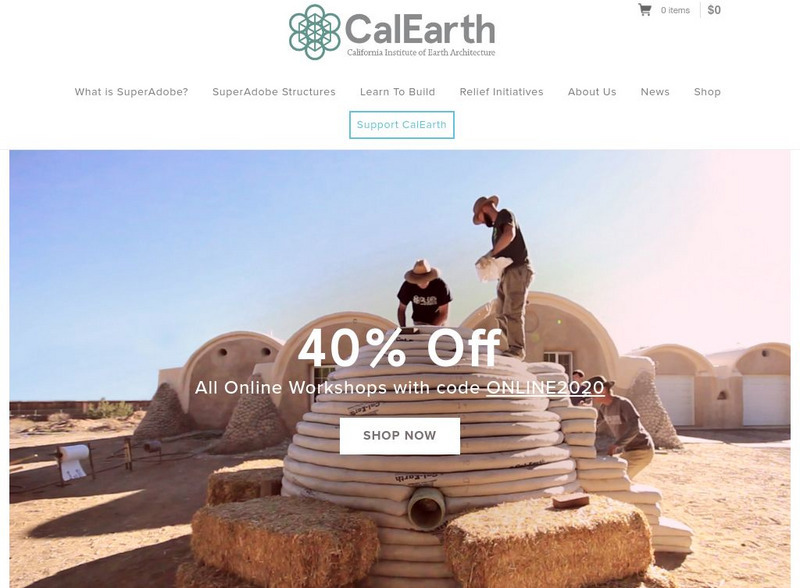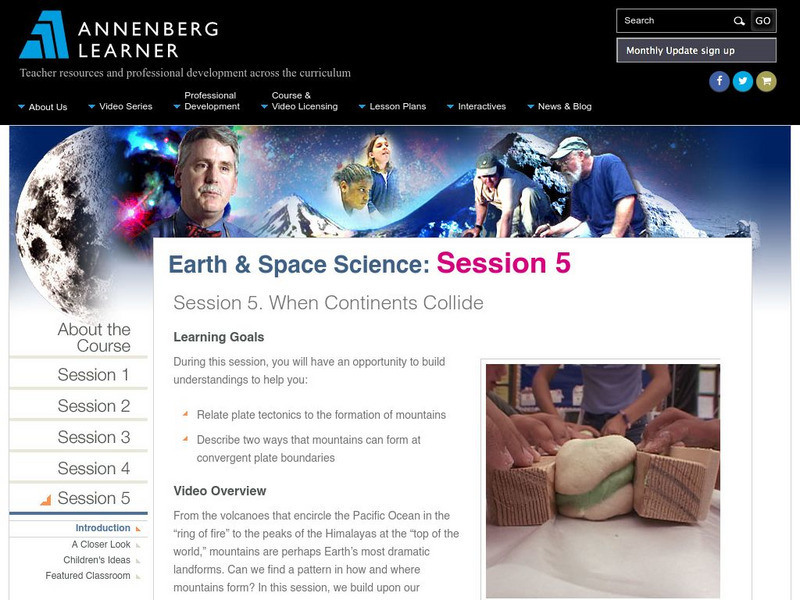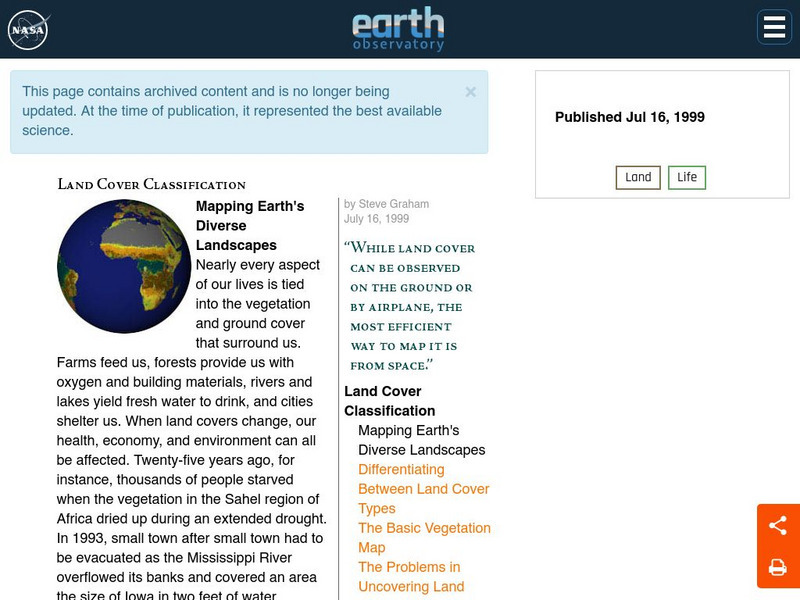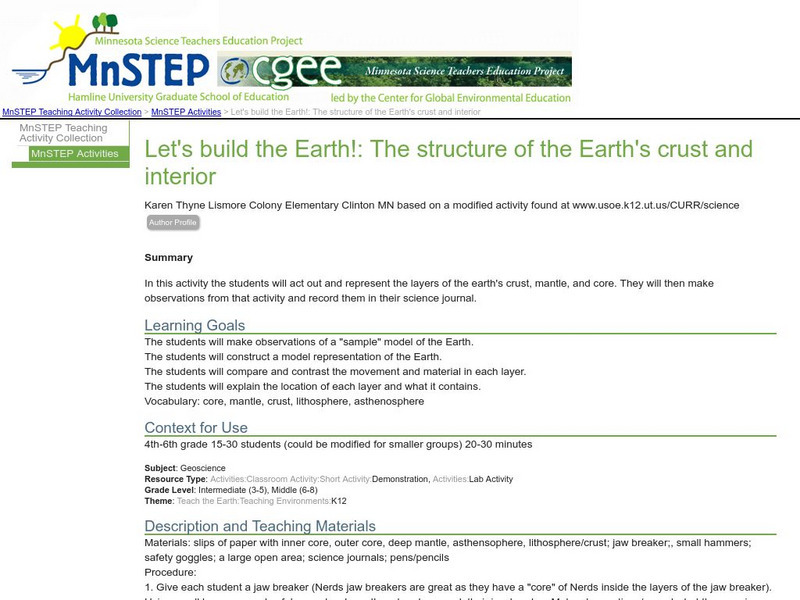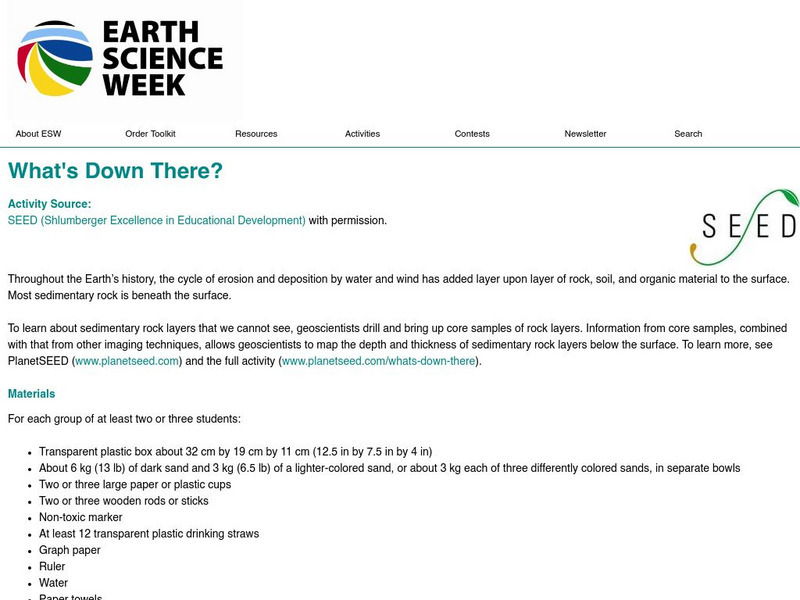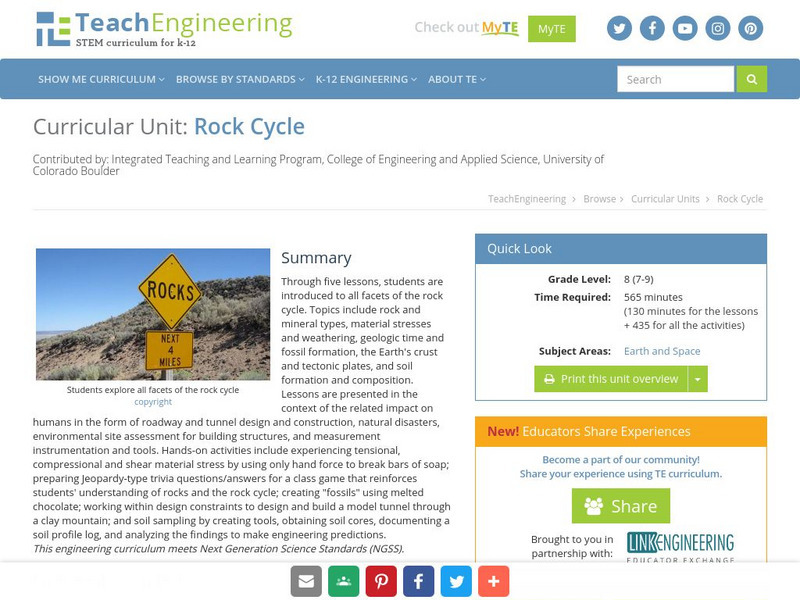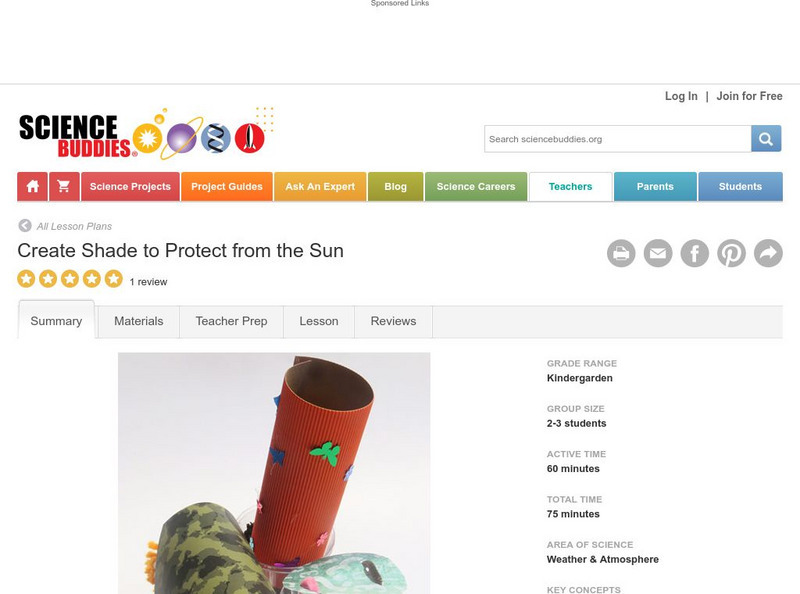Hi, what do you want to do?
Curated OER
Planting A Garden On Campus
Learners investigate the school campus area in order to plan the best spot for a class garden. They create a map of the school and research the different types of soil that exist in order to find the best spot. The class takes the...
Curated OER
The Path of Pollution
Students conduct a brainstorming exercise that asks them to list all the ideas about air pollution that can be recalled. The ideas are recorded on a chart that the teacher has prepared. The lesson contains sufficient background...
Curated OER
Run-off Race
Students create wetland models in pans and use them to experiment to see how plants help slow the flow of runoff water and keep our waterways clean.
Curated OER
World Geography: Water: The Indispensable Resource
Students are able to explain why water is an indispensable resource in a written essay and class discussion. They identify at least three examples of where water has been a source of conflict between societies from a reading and...
Curated OER
Science: What Happens to Create the Lode?
Students understand how mineral deposits are formed and why they are not evenly dispersed. They create and describe three different precipitates from four solutions simulating mineral ore deposit formation in sedimentary rock.
Curated OER
Energy Content Of Foods And Fuels
Students engage in a study of food and how it used as fuel for the human body. They research how biological systems require energy and compare them to the physical science systems like machines. They compare and contrast what they have...
Curated OER
Looking at the Community Tree
Third graders review the characteristics of living and nonliving organisms. As a class, they observe a tree and describe the interactions between the living and nonliving organisms surrounding it. To end the lesson, they ask a question...
Other
Science4 Us: Materials
Students use a dichotomous key to sort materials into natural and man-made and sort further using the adjectives rough and smooth; this activity builds both science and language skills as students classify materials and build deeper...
Concord Consortium
Concord Consortium: Stem Resources: Buildings and Earthquakes
Do you think you can build a house that can withstand the shaking from an earthquake? In this activity, students design and construct model building that will be tested on a shake table with a force sensor. Activity includes questions...
Other
Cal Earth the California Institute of Earth Art and Architecture
Founded and directed by the internationally renowned architect and author Nader Khalili, this institute works to create homes from the earth using such materials as sand, clay, and dirt. Its mission is to create tree-less places for...
Other
Massachusetts Department of Education: Sunlight Warms Earth's Surface
This unit contains a series of lessons that allow young scholars to explore the effect of sunlight on Earth's natural surfaces of sand, soil, rock, and water. In addition, students explore how the color and material of a surface affects...
Annenberg Foundation
Annenberg Learner: Earth and Space Science: When Continents Collide
Material to begin an exploration of plate tectonics and mountain formation. An hour-long video is accompanied by learning goals, an outline and overview, details on metamorphic rocks and mountain building, and ideas for teaching this...
NASA
Nasa Earth Observatory: Land Cover Classification
Learn about the important resources our land offers us: food, water, oxygen, building materials, and more. Discover how scientists have been mapping land for years trying to prevent disasters and to collect environmental information.
Science Education Resource Center at Carleton College
Serc: Let's Build the Earth!: The Structure of the Earth's Crust and Interior
For this activity, learners will make observations then construct a "sample" model representation of the Earth's layers. They will compare and contrast the movement and material in each layer explaining the location and what it contains.
American Geosciences Institute
American Geosciences Institute: Earth Science Week: What's Down There?
Students build a model to learn about the cycle of erosion and deposition by water and wind which deposits layer upon layer of rock, soil, and organic material to the surface.
TeachEngineering
Teach Engineering: Building a Barometer
Students investigate the weather from a systems approach, learning how individual parts of a system work together to create a final product. Students learn how a barometer works to measure the Earth's air pressure by building a model out...
Georgia Department of Education
Ga Virtual Learning: Mountain Building
In this interactive tutorial you will learn how pressure creates stress and strain on rocks. Learn how different types of strain are produced by different plate tectonic settings, and explore the different types of mountain ranges and...
PBS
Pbs Kids: Science Rocks: Build a Tent
This site provides instructions on how to build a tent including materials needed. It focuses primarily on a model tent but gives hints to adapt it to an outdoor tent that could provide shelter from the weather.
PBS
Nova Teachers: The Day the Earth Shook: Classroom Activity
Challenge your students to design a building that will withstand an earthquake. Using materials like 3x5 cards and paperclips, students design three different buildings and test their effectiveness.
Science Buddies
Science Buddies: Get Down and Dirty: How Does Soil Change With Depth?
What covers less than 10% of the Earth's surface, yet is a vital natural resource for terrestrial life? What filters ground water and supports most of our food production, not to mention the production of building materials and paper?...
TeachEngineering
Teach Engineering: Rock Cycle
Through five lessons, students are introduced to all facets of the rock cycle. Topics include rock and mineral types, material stresses and weathering, geologic time and fossil formation, the Earth's crust and tectonic plates, and soil...
TeachEngineering
Teach Engineering: Survive That Tsunami!
Students use a table-top-sized tsunami generator to observe the formation and devastation of a tsunami. They see how a tsunami moves across the ocean and what happens when it reaches the continental shelf. Students make villages of model...
Science Buddies
Science Buddies: Create Shade to Protect From the Sun
In this fun activity, students will get creative with craft materials. They will figure out how to protect an "animal" and its territory from getting too hot in the sun. What will they build to keep their animals cool?
Curated OER
Unesco: Ghana: Asante Traditional Buildings
To the north-east of Kumasi, these are the last material remains of the great Asante civilization, which reached its high point in the 18th century. Since the dwellings are made of earth, wood and straw, they are vulnerable to the...













